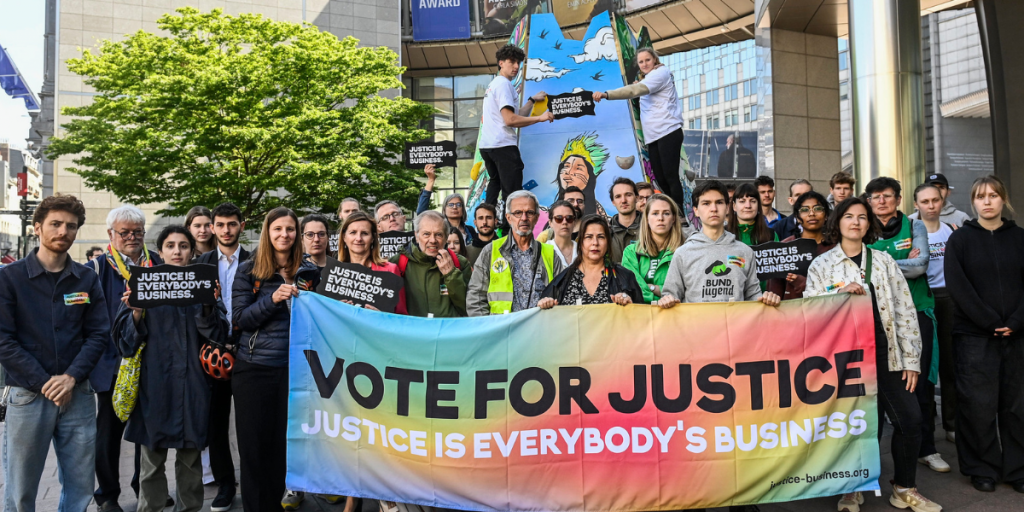The EU still has a long way to go in delivering justice for victims and protecting the climate from corporate harm, says Friends of the Earth Europe, as members of the European Parliament delivered their final position on the EU’s corporate sustainability due diligence directive (CSDDD).
Today’s vote marked the end of the Parliament’s process to agree its position on the text. At the same time, it marks the start of the final negotiation between the Council, Parliament and Commission before the text is adopted into law.
Friends of the Earth Europe has criticised both the Parliament’s and the Council’s positions for failing victims of corporate abuse.
The Council’s position, finalised in December 2022, failed to address the burdens victims face when attempting to hold a company accountable for human rights violations.
The Parliament did more on access to justice by comparison, but ultimately failed to challenge systemic corporate impunity. For example, they failed to ensure that parent companies are automatically held liable for their own subsidiaries, and that they have properly conducted their due diligence, instead of expecting victims to prove that the company failed to do so.
Paul de Clerck, economic justice coordinator from Friends of the Earth Europe said:
We can endlessly compare Council and Parliament positions, but when you consider the massive power imbalances faced by victims of corporate abuse, especially from the Global South, you can see that both the positions hardly make a dent in solving the issues. Victims of corporate abuses are still largely left without help by these proposals.
Friends of the Earth Europe also pointed out that the EU is not taking the role of business in exacerbating the climate crisis seriously enough. The Parliament made significant strides towards climate due diligence by including climate as a key environmental category and strengthening the criteria for corporate transition plans. But climate obligations for companies under the directive would only apply to the vast majority of companies by earliest 2028, which is far out of line with the EUs own climate plans and its 2030 targets.
Paul de Clerck continues:
The Parliament’s amendments to the climate provisions in the draft legislations are a step in the right direction but still don’t match the scale and urgency of the climate crisis we’re in. People across the world are already facing the terrifying impacts of climate change, so it is crucial that climate obligations for companies don’t encounter any further delays.
FOEE insists that justice for victims as well as climate ambition must be improved during the trilogue negotiations which are scheduled to start in summer.







